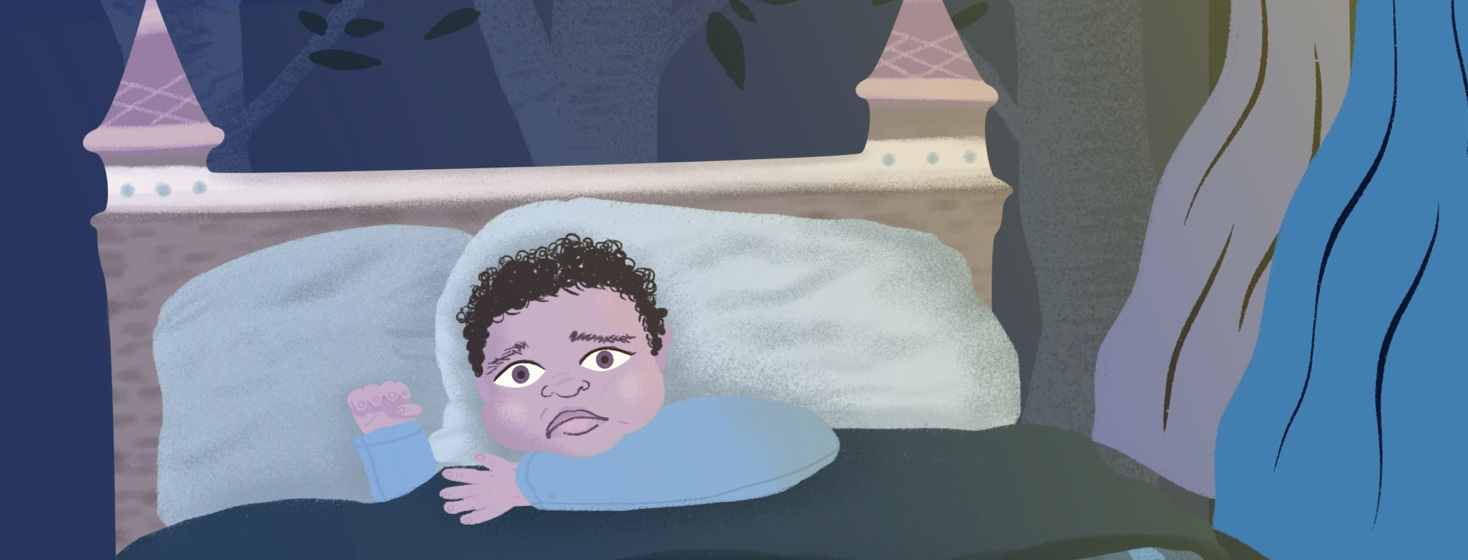Living Through Childhood Insomnia
I struggled with insomnia long before I knew it's name. I vividly remember laying away in my childhood bedroom, staring at the moonlight coming through the window, and wondering how long it had been since my parents tucked me in and kissed me goodnight.
This was before I was old enough to have a clock in my room, before there was any way to mark the time, but I knew - I knew I had been waiting longer than ideal to fall asleep.
What was this magic, this drifting into dreamland, and why did people talk about it like it was so easy?
My parents recollection of my childhood insomnia
My parents recount different portions of my sleepless nights to others, and even now, as I am an adult. They remember coming into my bedroom in the morning to find me upside down in bed, head at the foot of the bed and toes by my pillow, or my blanket thrown off my bed and moved halfway across the room. They laugh at what a "restless" sleeper I have always been.
I get it - I understand they can only go off of what they saw, and what they remember. But to me, they are dismissing the sheer struggle of living with childhood insomnia.
Finally, someone who gets it
As I got a little older, maybe middle school, I remember talking to a teacher about how hard it was to fall asleep at night. And this kind soul, she understood. She asked me if it felt like my mind remembered a thousand things once the lights turned out and I was alone in the quiet.
I jumped up and said, "Yes! Yes, that's exactly the problem." She recommended keeping a notebook in my room, and writing as much as I could down when I felt like this.
It was a good start, and it helped me a little, but it wasn't a solution to my sleep disorder. As we all know, there often isn't just one answer to our struggles. It usually takes a whole combination of things to help us both fall asleep and stay asleep at night.
Challenging nights turned into challenging mornings
Honestly, as a kid, the nighttime felt loneliest. This was far before cell phones or laptops or even TVs in our bedrooms. This was just me, in the dark, with a few stuffed animals, my blankets, and the thoughts in my mind, wondering why and then worrying about the fact that I wasn't asleep. How overwhelming for a child. How painstakingly challenging.
I remember the mornings being hard too. At whatever point during the night I finally fell asleep, it was much later than my bedtime, reducing the amount of sleep I should have been getting at that age.
So, getting up and getting going in the mornings - it was hard. My dad would come in to wake me up and I would ask for 5 more minutes like... Several times. This was again, before snooze buttons, just parents and their wakeup calls. It was always so hard for me to get going in the mornings.
Moving forward
Looking back, I feel sad for that part of me as a child - someone who knew something was off, who felt angsty and uncomfortable by a challenge, and also didn't have the language to explain what was happening or to ask for help.
Now, in my late 30s, I find myself watching my toddler, wondering if she will struggle with sleeping the same way I did, and thinking about the language I use with her and the way I approach her naps and her bedtime, hoping she will feel safe and supported whether or not she faces the challenges of childhood insomnia.

Join the conversation